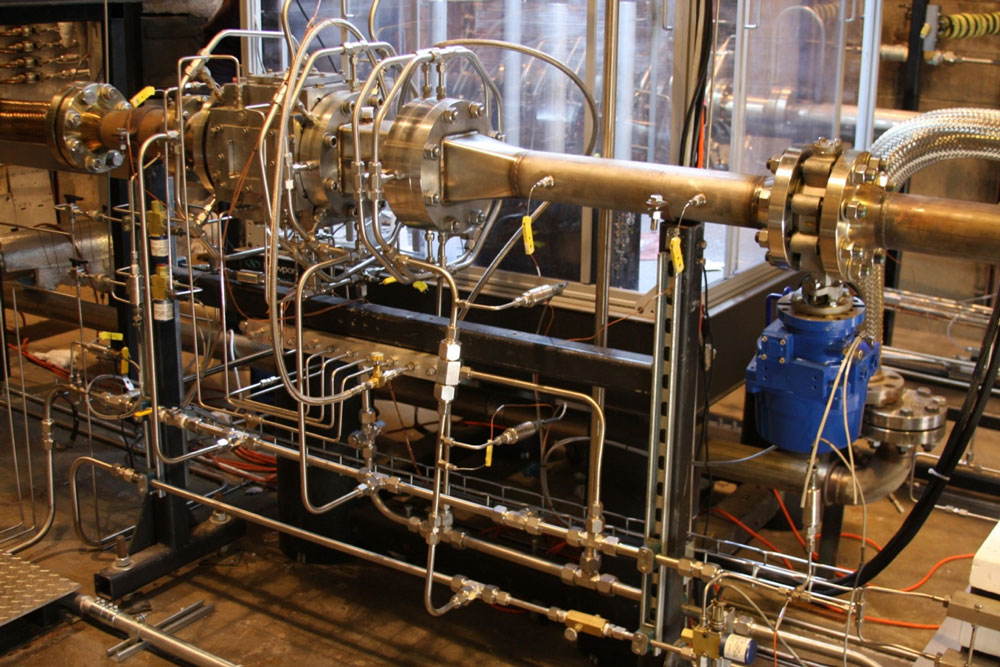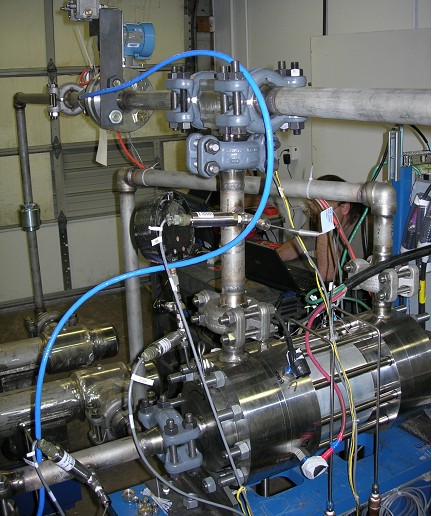Liquid Combustion Rig
A Liquid Combustion Rig is a specialized experimental apparatus engineered to investigate and analyze the combustion behavior of liquid fuels. This intricate setup facilitates controlled combustion processes, enabling researchers to scrutinize combustion efficiency, flame dynamics, heat release patterns, and emissions profiles of various liquid fuels in a controlled environment.

Within the purview of combustion research, HiREF plays a pivotal role in comprehensively exploring the intricacies of liquid combustion rigs. HiREF’s engagement with this technology extends beyond conventional experimentation. The laboratory conducts systematic investigations to unravel the complexities of liquid fuel combustion, catering to the dynamic demands of advancing energy technologies and environmental sustainability.
HiREF employs cutting-edge techniques within the Liquid Combustion Rig to simulate and analyze real-world combustion scenarios. The laboratory’s researchers delve into the combustion kinetics, turbulence interactions, and pollutant emissions associated with liquid fuels. This comprehensive analysis extends from fundamental combustion mechanisms to the optimization of practical applications in various domains, ranging from internal combustion engines to industrial furnaces.

Through its dedicated exploration of Liquid Combustion Rig technology, HiREF contributes valuable insights that pave the way for enhanced combustion efficiency and reduced emissions in liquid-fuel-based systems. The laboratory’s collaborative efforts with academic institutions and industrial partners foster an ecosystem of knowledge exchange, propelling advancements in combustion science and technology.
In the broader context, HiREF’s involvement with Liquid Combustion Rigs aligns with its overarching commitment to sustainable energy solutions and innovative combustion-related technologies. By delving into the complex interplay of fuel properties, combustion dynamics, and environmental impact within this apparatus, HiREF serves as a beacon of knowledge and innovation, steering the trajectory of combustion science towards cleaner, more efficient, and ecologically conscious energy utilization.
